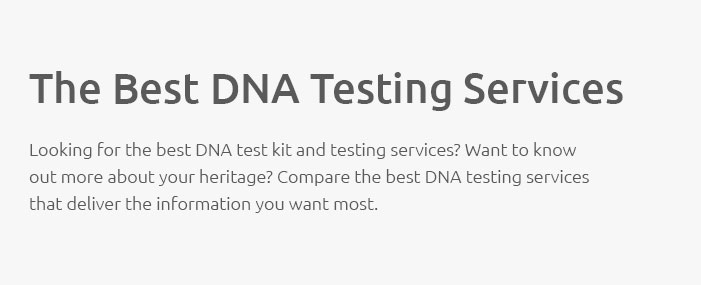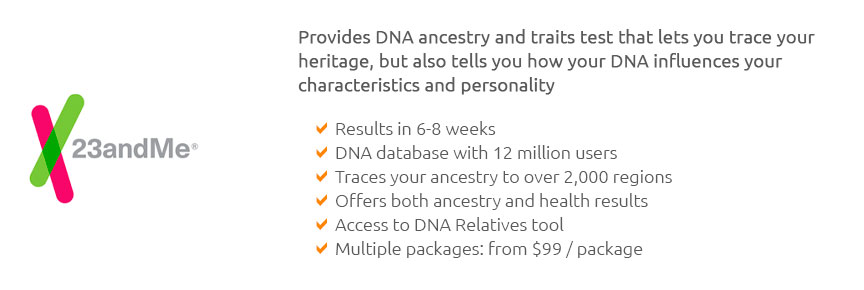 |
 |
 |
|---|
 |
 |
|---|
 |
|
|---|---|
 |
 |
 |
 |
 |
 |
 |
 |
 |
 |
 |
 |
 |
 |
 |
 |
|---|
Understanding the Accuracy of DNA Testing for AncestryIn recent years, the allure of uncovering one’s ancestral past through DNA testing has captured the imagination of millions worldwide. These tests promise insights into our genetic origins, tantalizing us with the possibility of discovering long-lost relatives, ethnic backgrounds, and even ancient migration patterns. However, amidst the excitement, it is vital to consider the accuracy of these tests and what they can genuinely reveal about our lineage. To begin with, DNA ancestry tests analyze specific markers in your genome, comparing them to reference populations to estimate the ethnic composition of your ancestry. While this sounds straightforward, the results are influenced by various factors, such as the size and diversity of the reference database used by the testing company. Larger databases with diverse samples can potentially provide more accurate results, but the inherent limitations of these databases should not be overlooked. Notably, regions with fewer samples may yield less precise ancestry estimations. The Role of Reference Populations Each company employs its unique algorithm to interpret the genetic data, leading to potential variations in results between different testing providers. For example, a test from one company might suggest a 20% Irish heritage, while another might show 15%. These differences often arise from the distinct datasets and analytical methods employed. Thus, when seeking to understand your ancestry, it is beneficial to consider results from multiple sources to gain a more rounded perspective. Genetic Markers and Their Interpretation Furthermore, the interpretation of genetic markers is not without its challenges. Some markers are indicative of broad geographical areas rather than specific countries, which can lead to generalizations. This nuance is essential because it highlights the complexity of human migration and the fluid nature of borders throughout history. As such, while these tests can provide fascinating insights, they are not definitive guides to one’s identity. Potential for Discoveries and Surprises On a personal level, DNA ancestry testing has the potential to unveil surprising revelations, such as previously unknown familial connections or unexpected ethnic backgrounds. These discoveries can be profoundly meaningful, offering a sense of belonging and understanding of one’s roots. However, it is crucial to approach these results with an open mind, recognizing that genetic heritage is just one facet of identity, shaped by culture, personal experiences, and family narratives. Considerations for Accuracy Several elements contribute to the accuracy of these tests: the quality of the laboratory processes, the comprehensiveness of the reference populations, and the sophistication of the algorithms used. Users should be aware that while DNA testing technology continues to advance, it is not infallible. Ethical considerations also arise, particularly regarding data privacy and the potential for misuse of genetic information. Conclusion: Navigating the Landscape of Genetic Ancestry In conclusion, DNA testing for ancestry is a powerful tool that can enrich our understanding of genetic heritage, yet it is essential to navigate this landscape with realistic expectations. These tests can offer valuable insights and a deeper connection to our past, but they are most effective when considered alongside historical records and family lore. Ultimately, while the science behind DNA ancestry testing is robust, it is the personal stories and the connections we make that truly bring our ancestry to life. https://www.quora.com/Are-the-results-of-DNA-ancestry-test-reliable-Can-they-help-someone-find-his-her-biological-parents-I-dont-look-like-anyone-in-my-family-people-never-guess-my-ethnicity-correctly-and-Im-afraid-I-might-be-adopted
Yes. A half brother, through my father, was adopted out at birth by his young mother in 1958. He did his Ancestry DNA, and matched with me (his half sister) as ... https://www.youtube.com/watch?v=YLC3jJNd55o
... exact same DNA matches. Chapters: 0:00 Why some people take a DNA test (and why it matters) 2:18 What an ethnicity estimate really means 4 ... https://www.ancestry.com/c/ancestry-blog/benefits-of-using-a-home-dna-test-kit-from-ancestrydna
Matches made with AncestryDNA are highly accurate, with results noted as parent/child, immediate family, close family, and then cousins from ...
|
|---|